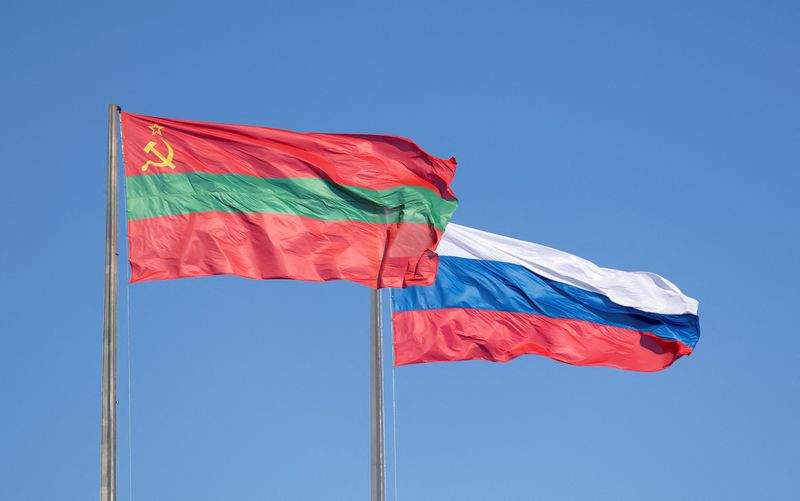(Reuters) – Officials in Moldova’s breakaway Transdniestria region said on Saturday that energy conservation measures had allowed them to ease sanctions imposed by blocking Russian gas supplies, rolling Along with further reducing blackout duration.
Moldova’s pro-European central government renewed its criticism of Russia, saying it caused the energy crisis and now wants to portray itself as the power that was coming to the rescue of the separatist region.
Transdniestria, which broke away from Moldova at the end of Soviet rule, has relied on Russian gas shipped through Ukraine. Ukrainian officials, locked in a 34-month-old conflict with Russia, have refused to extend the transit deal until 2025.
Russian gas company Gazprom ( MCX: ) has said it will not ship gas to Moldova via alternative routes, citing Moldova’s $709 million in arrears. Moldova, which condemns Russia’s invasion of Ukraine, disputes that figure.
Transdniestria’s pro-Russian leaders said the daily rolling blackout would be reduced to three hours on Sunday, reporting on the region’s official Telegram channel. The eight-hour power cut earlier this week was reduced to five hours on Friday.
“With the current super efficiencies in consumption, Transdniestria has enough gas until the end of January,” the channel quoted First Deputy Prime Minister Sergei Obolonik as saying.
Many factories have switched to night shifts, when the power grid is under less pressure, but officials said one plant, a cement maker in the town of Rybnitsa, had closed.
A steel mill of critical importance to the region also closed down in the city.
Russian gas supplied to the separatist region powers a thermal plant that provides electricity for both Transdniestria and most of the government-held territories’ needs.
Moldova blamed Russia
Daniel Voda, the press secretary for Moldova’s central government, said the suggestion that Russia might relax and eventually send gas to Transdniestria does not change Moscow’s responsibility for the energy crisis.
“Every time Russia wants to show its power, it cuts off important resources and takes people hostage,” Voda told media outlet Nokta.
“This is an experiment using people that shows that Moscow is not concerned about the comfort and safety of residents. … No one deserves to live in fear and cold.”
Moldova’s government has accused Russia of artificially creating an energy crisis to destabilize the country ahead of parliamentary elections this summer. It has offered to help Transdniestria deal with power shortages, but leaders in the separatist region have denied receiving any official proposals.

Moldovan President Mia Sandu has said that Gazprom could supply gas to Transdniestria via an alternative route, via the TurkStream pipeline through Turkey and then Bulgaria and Romania.
Transdniestria fought a brief war against Moldovan government forces in 1992 and still hosts 1,500 Russian troops in the small territory neighboring Ukraine.










